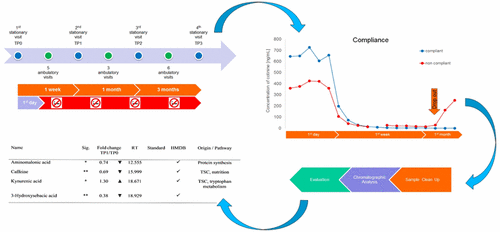Smokers who quit have metabolite levels that resemble those of nonsmokers

Even after years of smoking, the body has a remarkable ability to repair itself. Now in a study appearing in ACS' Journal of Proteome Research, scientists report that certain metabolic changes occur soon after quitting, and these changes could help explain how some ill-effects of smoking might be reversible.
Smoking kills more than 7 million people worldwide annually and is one of the most important risk factors for six of world's eight leading causes of premature death, according to the World Health Organization. But, soon after a person quits the body begins to repair some of accumulated damage caused by smoking. In fact, according to the U.S. Centers for Disease Control and Prevention, within two to three months of quitting, lung function begins to improve and the risk of heart attack begins to diminish. A previous study published in 2013 suggested that metabolic changes which occur after smoking cessation may kick start these physiological improvements. Building on this work, Nikola Pluym and colleagues sought to hone in on what alterations smoking causes in the body's metabolic pathways and whether any of these changes are reversible after quitting.
The researchers regularly collected blood, urine and saliva samples from male volunteers who were trying to quit smoking up to three months after smoking cessation. To minimize nutritional effects on metabolism, the researchers strictly controlled the volunteers' diets during four in-patient stays. To ensure compliance, they measured levels of carbon monoxide and cotinine, a nicotine metabolite which can be detected in urine and saliva over several days after someone has smoked. In the study, the researchers analyzed the experimental samples with an untargeted metabolic fingerprinting approach.
Overall, the researchers identified 52 metabolites that were significantly altered after the subjects stopped smoking, including several that showed reversible changes toward that of a nonsmoker's metabolic profile. The team concluded that these compounds could one day be used as biomarkers for smoking-induced biological changes. Moreover, the researchers state that the published method would be also useful for evaluating the benefits, if any, for smokers when switching to new products like electronic cigarettes.
More information: Michael Goettel et al. Metabolomic Fingerprinting in Various Body Fluids of a Diet-Controlled Clinical Smoking Cessation Study Using a Validated GC-TOF-MS Metabolomics Platform, Journal of Proteome Research (2017). DOI: 10.1021/acs.jproteome.7b00128
Abstract
Untargeted GC-TOF-MS analysis proved to be a suitable analytical platform to determine alterations in the metabolic profile. Several metabolic pathways were found to be altered in a first clinical study comparing smokers against nonsmokers. Subsequently, we conducted a clinical diet-controlled study to investigate alterations in the metabolic profile during the course of 3 months of smoking cessation. Sixty male subjects were included in the study, and plasma, saliva, and urine samples were collected during four 24 h stationary visits: at baseline, while still smoking, after 1 week, after 1 month, and after 3 months of cessation. Additionally, subjects were monitored for their compliance by measurements of CO in exhaled breath and salivary cotinine throughout the study. GC-TOF-MS fingerprinting was applied to plasma, saliva, and urine samples derived from 39 compliant subjects. In total, 52 metabolites were found to be significantly altered including 26 in plasma, 20 in saliva, and 12 in urine, respectively. In agreement with a previous study comparing smokers and nonsmokers, the fatty acid and amino acid metabolism showed significant alterations upon 3 months of smoking cessation. Thus these results may indicate a partial recovery of metabolic pathway perturbations, even after a relatively short period of smoking cessation.


















